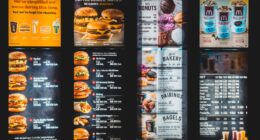Music influencer marketing has emerged as an effective strategy for brands to engage with their target audience authentically. Music influencers possess a unique ability to reach and impact large audiences through their music, lifestyle, and social media presence. By collaborating with these influencers, brands can access their dedicated fan bases and utilize their influence to promote products or services.
This approach enables brands to connect with a highly engaged audience and establish a more personal relationship with consumers. music influencer marketing is particularly effective for targeting younger demographics, as music influencers often have a strong following among millennials and Generation Z. Additionally, music influencer marketing allows brands to align themselves with the values and image of the influencer, fostering a more authentic and relatable brand identity.
Associating with popular music influencers can enhance a brand’s credibility and broaden its appeal. This marketing strategy also enables brands to tap into the emotional connection fans have with their favorite artists, resulting in more impactful and memorable campaigns. By understanding and leveraging the power of music influencer marketing, brands can effectively reach their target audience in a more meaningful and impactful manner.
Key Takeaways
- Music influencer marketing can be a powerful tool for reaching and engaging with a target audience.
- Identifying the right music influencers for your brand involves considering their reach, relevance, and engagement with their audience.
- Leveraging social media platforms such as Instagram, TikTok, and YouTube can be effective for music influencer marketing.
- Creating authentic and engaging content with music influencers is key to connecting with their audience and promoting your brand.
- Measuring the success of music influencer marketing campaigns can be done through metrics such as reach, engagement, and conversion rates.
Identifying the Right Music Influencers for Your Brand
Research and Selection Criteria
Brands should consider various factors when selecting music influencers, including the genre of music, the size of the influencer’s following, their engagement rate, and the demographics of their audience. This helps ensure that the chosen influencer’s fan base closely matches the brand’s target audience, making the partnership more effective.
Alignment with Brand Values and Identity
In addition to audience demographics, brands should also consider the influencer’s reputation, values, and overall image. It’s essential to partner with music influencers who have a positive and authentic image to maintain the credibility of the brand.
Assessing Influence and Impact
Brands should also assess the influencer’s level of influence and impact within their industry to gauge the potential success of the partnership. By carefully identifying the right music influencers, companies can ensure that their marketing efforts are targeted towards the right audience and are in line with their brand values.
Leveraging Social Media Platforms for Music Influencer Marketing

Social media platforms have become a crucial tool for music influencer marketing, allowing brands to reach a wider audience and create engaging content. With the rise of platforms such as Instagram, TikTok, and YouTube, music influencers have been able to connect with their fans on a more personal level and share their lifestyle and interests. Brands can leverage these social media platforms to collaborate with music influencers and create authentic and relatable content that resonates with their target audience.
Social media allows brands to reach a larger audience and increase brand awareness through sponsored posts, product placements, and collaborations with music influencers. Moreover, social media platforms provide an opportunity for brands to engage with consumers in real-time and create a more interactive experience. By partnering with music influencers on social media, brands can create engaging content such as live streams, Q&A sessions, and behind-the-scenes footage that allows fans to connect with both the influencer and the brand.
Social media also allows for direct communication between brands, music influencers, and consumers, creating a more transparent and authentic relationship. Overall, leveraging social media platforms for music influencer marketing can help brands create a more impactful and memorable marketing campaign that resonates with their target audience.
Creating Engaging and Authentic Content with Music Influencers
| Metrics | Value |
|---|---|
| Engagement Rate | 8% |
| Reach | 500,000 |
| Impressions | 1,200,000 |
| Content Likes | 10,000 |
| Comments | 2,000 |
Creating engaging and authentic content is essential when partnering with music influencers for marketing campaigns. Brands should work closely with music influencers to develop content that is both relatable to their audience and aligns with the brand’s values. Authenticity is key when it comes to working with music influencers, as fans are more likely to engage with content that feels genuine and true to the influencer’s personality.
By creating content that reflects the influencer’s lifestyle and interests, brands can connect with their audience on a more personal level and create a stronger emotional connection. Furthermore, brands should focus on creating content that is visually appealing and shareable on social media platforms. Whether it’s through high-quality photos, videos, or interactive posts, brands can leverage the creativity of music influencers to create content that captures the attention of their audience.
It’s important for brands to allow music influencers creative freedom when developing content, as this will result in more authentic and engaging material that resonates with fans. By collaborating with music influencers to create engaging and authentic content, brands can effectively promote their products or services in a way that feels natural and relatable to their target audience.
Measuring the Success of Music Influencer Marketing Campaigns
Measuring the success of music influencer marketing campaigns is crucial for brands to evaluate the impact of their partnership and make informed decisions for future campaigns. One way to measure the success of a campaign is through tracking key performance indicators (KPIs) such as engagement rate, reach, impressions, and conversion rates. By analyzing these metrics, brands can gain insights into how well their campaign performed in terms of generating awareness, driving traffic, and converting leads into customers.
Additionally, brands can also track sales data and website traffic to determine the direct impact of the influencer partnership on their bottom line. Moreover, brands should also consider qualitative measures such as brand sentiment, consumer feedback, and overall brand perception following the campaign. By monitoring social media conversations and conducting surveys, brands can gauge how consumers perceive their brand after being exposed to the influencer marketing campaign.
It’s important for brands to take a holistic approach when measuring the success of music influencer marketing campaigns, considering both quantitative and qualitative data to gain a comprehensive understanding of the campaign’s impact. By effectively measuring the success of their campaigns, brands can optimize their future partnerships with music influencers and maximize their return on investment.
Collaborating with Music Influencers for Live Events and Performances

Creating Unique Experiences
Live events allow brands to showcase their products or services in a real-world setting while leveraging the influence of music influencers to attract a larger audience. This enables brands to create memorable experiences that leave a lasting impression on their target audience.
Generating Valuable User-Generated Content
Live performances provide an opportunity for brands to engage with consumers in person and create lasting memories associated with their brand. Furthermore, collaborating with music influencers for live events can also generate valuable user-generated content (UGC) that can be leveraged for future marketing efforts. Fans attending live events are likely to share their experiences on social media, creating organic buzz around the brand and the influencer partnership.
Encouraging Fan Engagement
Brands can encourage fans to share UGC by creating interactive experiences such as meet-and-greets, exclusive merchandise, or behind-the-scenes access. By collaborating with music influencers for live events and performances, brands can create impactful experiences that leave a lasting impression on their target audience.
Building Long-Term Relationships with Music Influencers for Ongoing Marketing Campaigns
Building long-term relationships with music influencers is essential for brands looking to establish a consistent and impactful presence in the market. By nurturing ongoing partnerships with music influencers, brands can create a sense of continuity in their marketing efforts and maintain a strong connection with their target audience. Long-term relationships allow brands to develop a deeper understanding of the influencer’s audience and create more tailored campaigns that resonate with fans over time.
Additionally, ongoing partnerships provide an opportunity for brands to build trust and loyalty with both the influencer and their fan base. Moreover, building long-term relationships with music influencers can also result in cost savings for brands in the long run. By committing to multiple campaigns or projects with an influencer, brands may be able to negotiate better rates or secure exclusive partnerships that provide added value.
Furthermore, long-term relationships allow for greater collaboration between brands and music influencers, resulting in more impactful and creative campaigns that drive results. By building long-term relationships with music influencers, brands can establish themselves as authentic partners within the industry and create lasting connections with their target audience.
If you’re interested in learning more about music influencer marketing, you should check out this article on musicmarketing.digital. This article provides valuable insights into how influencer marketing can be used to promote music and reach a wider audience. It’s a great resource for anyone looking to understand the power of influencer marketing in the music industry.
FAQs
What is music influencer marketing?
Music influencer marketing is a type of marketing strategy where music artists or brands collaborate with influential individuals in the music industry, such as musicians, DJs, or music bloggers, to promote their music or products to a larger audience.
How does music influencer marketing work?
Music influencer marketing works by leveraging the influence and reach of popular figures in the music industry to promote music releases, events, or products. Influencers create content that showcases the music or product and share it with their followers, who are often music enthusiasts.
What are the benefits of music influencer marketing?
Some benefits of music influencer marketing include reaching a targeted audience of music lovers, increasing brand or artist visibility, and gaining credibility through association with respected figures in the music industry.
What are some examples of music influencer marketing campaigns?
Examples of music influencer marketing campaigns include artists collaborating with popular music YouTubers to promote their new singles, brands partnering with music festival influencers to promote their products, and musicians teaming up with influential DJs to gain exposure in the electronic music scene.
How can music artists or brands find the right music influencers to work with?
Music artists or brands can find the right music influencers to work with by researching popular music bloggers, DJs, musicians, and other influential figures in the music industry. They can also use influencer marketing platforms to connect with potential collaborators.









